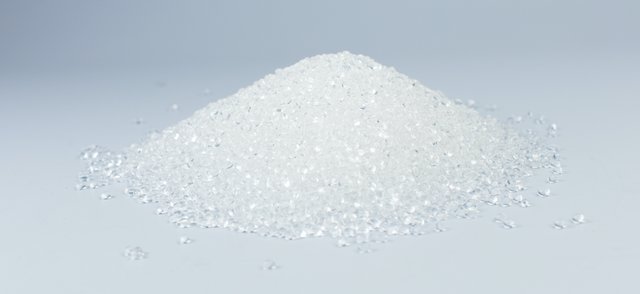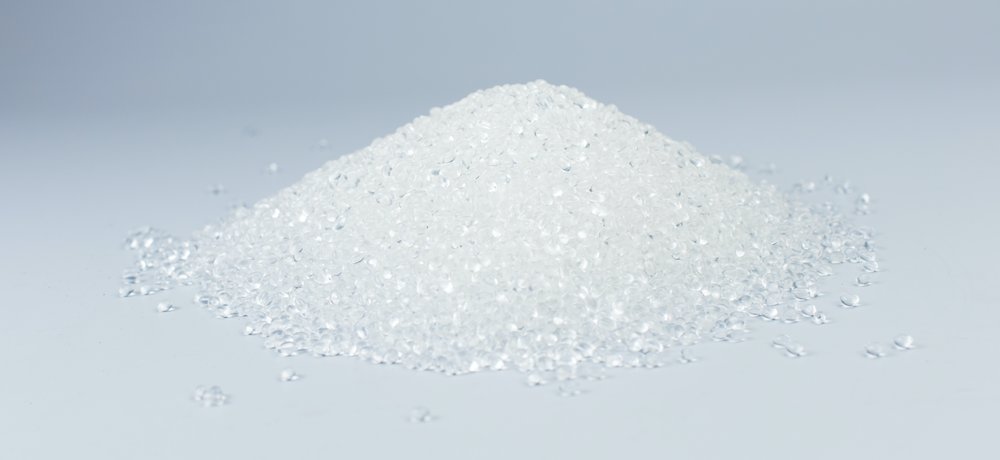If one key industry emerged out of the pandemic with a heightened sense of importance, it is the healthcare system and how it continues to support the nation’s recovery. Demand for highly responsive and urgent care went into a near critical overload during the various peaks in the COVID-19 pandemic.

Responses varied worldwide – but the pressure for a dynamic, creative approach to biomedical supplies and textiles, especially protective apparel, became a global story with new demand urging a greater involvement from manufacturers of all kinds.
Thermoplastic polyurethanes (or TPUs) are popularly known and specified within the medical industry for their advanced applications across various healthcare products. This high-performance material has been specified in the development of many safety critical applications, including high tech body armour solutions to leading aerospace solutions. Demand for advanced material solutions in the medical market is a rising area of interest with TPU applications leading the way for creative approaches to the likes of bio-medical products, protective apparel, infection control and medical devices.
A spotlight on thermoplastic polyurethane
A thermoplastic polyurethane or TPU is a rubber-like material with a range of beneficial features that makes it ideal for material engineering. TPU film grades are made from polyurethane plastics with properties such as great elasticity or environmental resistance to the likes of oil lubricants.
The material properties go beyond the standard market desirability and have become critical in innovating product design with features such as enhanced strength. It’s because of its excellent physical and mechanical properties, including durability, tear strength, and stress and puncture resistance, that TPUs have become a desirable material for medical applications. The additional elastomeric and flexibility properties make this material a more versatile choice, especially given its reputation as a more sustainable replacement to PVC materials.
Permali’s Tuftane TPU film grades are blended from polyester or polyether aromatic PU polymer technologies. The key features of this material range from excellent biocompatibility, transparency, to high elastic strain recovery, being soft to touch for skin contact and outstanding environmental resistance (including various gases and chemicals). The various medical applications demonstrate market advancement through material innovation with a spotlight on thermoplastic polyurethanes, which are emerging as a sustainable replacement to conventional PVC materials.
Manufacturing TPUs for medical markets
Material science can accelerate product innovation without compromising on compliance with various tightening safety regulations. Material solutions are shaped according to regulatory environments, technical requirements, product performance demands, and more. Specifically for manufacturers of medical equipment and healthcare products, TPU grades are being developed to bridge biocompatibility with fungal or bacterial resistance. Sterilisation of materials means that certain TPU grades can resist the growth of microbials such as MRSA (S. Aureus) and E-coli, and polyether-based TPU can help limit the spread of bacteria with an inherent ability to resist microbial growth. thermoplastic polyurethane
Desired for its processing flexibility, and grade varieties, material engineers and designers have multiple packaging alternatives. TPUs can be injection moulded, die-cut, thermoformed, or welded into the desired shape or size.
Permali’s Tuftane TPU films are easy for a manufacturer to work with using traditional techniques for combing, converting, and finishing of plastic and rubber materials. Most commonly, film and sheet processing and finishing techniques are used in manufacturing, including vacuum thermoforming; heat sealing and laminating; adhesive and solvent bonding; cutting, punching, and stamping; RF, HF and ultrasonic welding, embossing and printing.
At a regulatory level, there are broader compliance programs like EU’s Directive 93/ 42/ EEC, as well as national regulations. Specified for biocompatible medical, ISO 10993 for example represents safety standards to manage a variety of biological risks. Tuftane TPU films are regularly assessed as compliant for a range of device applications.
Biocompatibility explained
Medical devices are scrutinised under rigorous safety testing to ensure suitability for hospital environments. Bio-compatible material solutions are engineered to meet biological risks. At least, these materials must not introduce any unwanted responses, such as catalysing or inciting chemical reactions. Biocompatibility is a kind of safety evaluation or statement of an appropriate host response.
Biomedical products are manufactured under exacting safety regulations to perform in a range of professional and consumer healthcare markets. Resistance to bacteria and other fungi in combination with biocompatibility means that these materials are desirable for the unique challenges and complications of healthcare.
Medical applications of TPU
Applications of TPU films have been specified by leading manufacturers of pharmaceuticals, healthcare products, hospital equipment, bio-medical devices, and medical staff personal protection equipment (PPE).
TPUs are specified in many markets for its high-performance properties, and medical care applications can range from artificial heart components, blood plasma bags, to isolation tents in hospitals. High strength, tear resistance, and biocompatibility are all important properties that continue to encourage product innovation across the medical market. New applications emerge continually, especially where medical device manufacturers can advance the kinds of applications available to the market (such as isolating membranes, or wound dressings).
Polyurethanes are, specifically, reputable for outperforming other materials in these demanding environments. In medical settings, materials often rub against one another or bend. Without TPU grades, these materials would fatigue or weaken. Strengthening material properties through TPU is a way of advancing on product design and innovation.
Medical workers benefit from TPUs
During the pandemic, the spotlight on protective equipment and supply shortages became a familiar headline. Demand for product innovation and expedited turnarounds meant that various manufacturers had a role to play in supporting the NHS during a global health crisis.
Manufacturers used TPU solutions, such as protective membranes, in the deployment of personal protective equipment or PPE in the UK and Europe. The spotlight was not only on product design and safety, but how manufacturers aligned with the national effort to re-build the UK’s supply chain to urgently produce quality PPE solutions for frontline workers. Aside from supplying safety solutions for NHS staff, manufacturers have been deploying TPU materials for hospital bed mattress systems, which plays a critical role in patient care.
Takeaways
Whether patient or staff safety applications, TPUs have been valuable in advancing product design and helping the medical market innovate its devices and equipment when it comes to tackling challenging health crises. Looking ahead, material design is a starting point for innovating product design in a way that can help markets grow and overcome challenges.




